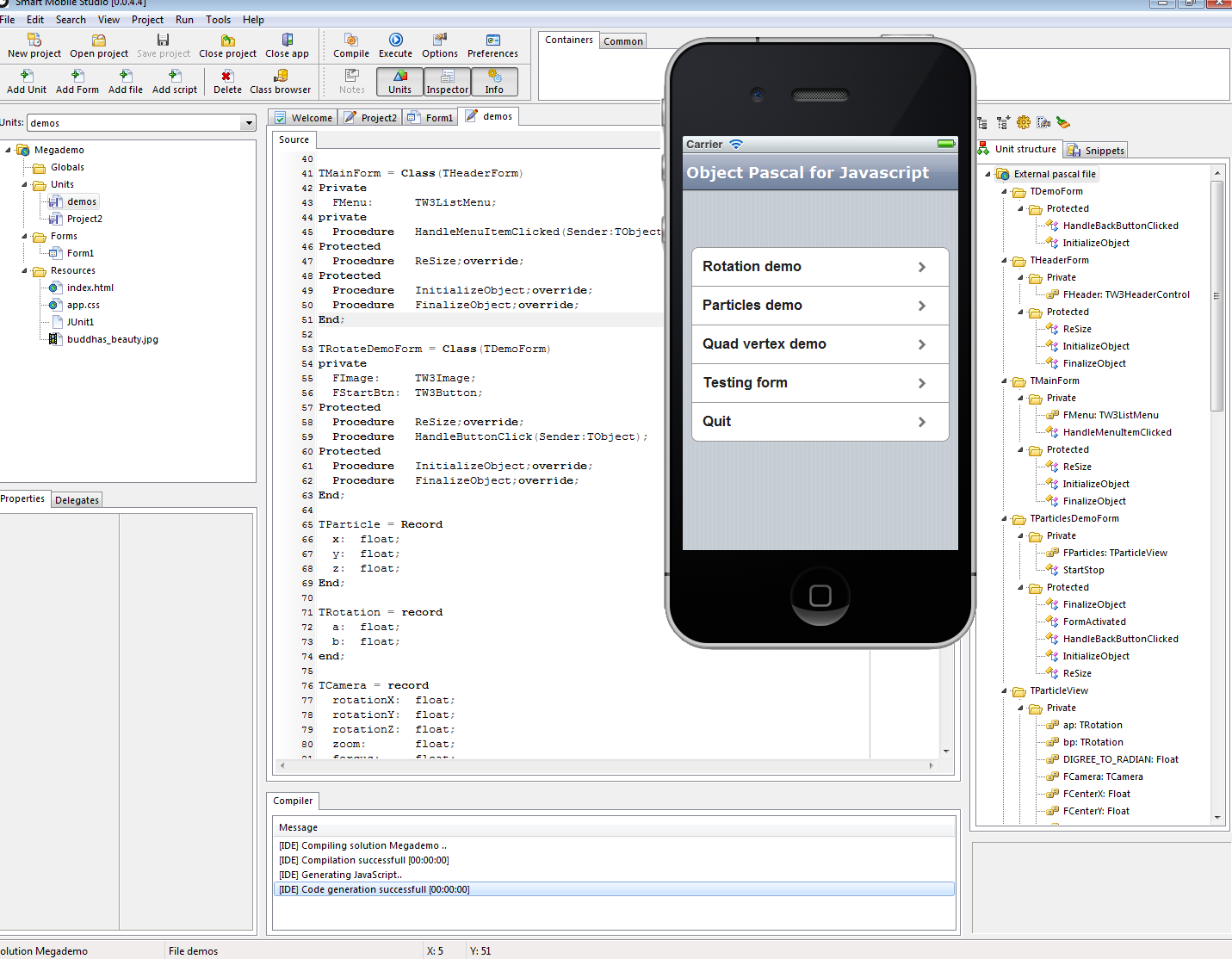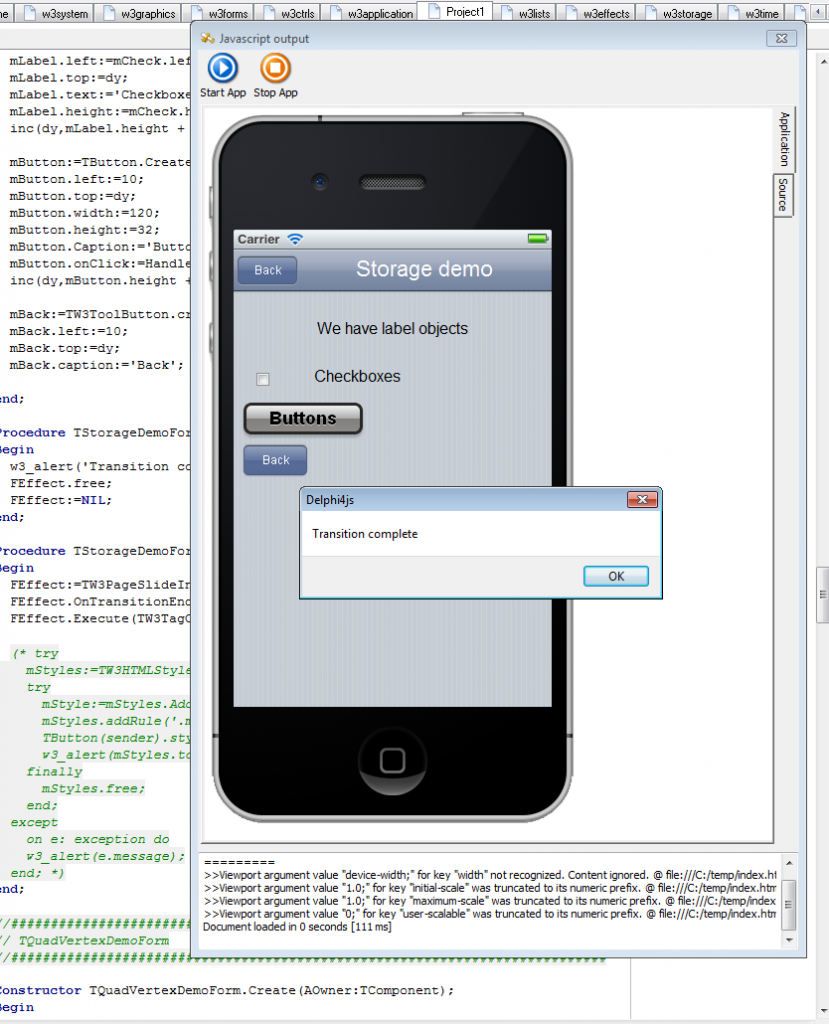Smart Mobile Studio has a lot to offer modern developers. If you are looking for a way to maximize the potential of the HTML5 platform then Smart has a recipe unlike any other on the market. No matter what industry or field of expertise you focus on – Smart provides benefits that saves time. It makes technological and financial sense.
Beginners will discover a language that has withstood
the test of time with unparalleled elegance.
Advertising
The world of advertising and content production operates with high demands. The market is constantly changing and the tools of the trade you have relied on for years – might not even be there tomorrow. Some vendors have consciously banned technologies like Adobe Flash in favour of HTML5 – which means you better start looking for a new method. A method which enables you to deliver quality content, on time, according to your clients expectations. Customers are simply not interested in flash banners any more.
Smart Mobile Studio allows you to take your HTML5 code to the next level. We provide a rich set of visual components ready for use out of the box. No fiddling with styles to get that native look, no experimental hacks to get it working and no shortcuts. This means you can spend your time focusing on delivering rich content and lasting impressions straight away.
As a bonus all your web skills remains relevant as ever before. Smart can interact with other frameworks and you can easily add your own, native javascript code.
With Smart Mobile Studio you finally have a tool that can deliver HTML5 friendly advertising with no dependencies. No plugins, no custom browser extensions needed. What you get is cutting edge javascript which runs incredibly fast.
Entertainment and multimedia
With touch based devices like the iPad (or the rapidly expanding Android based market) almost everywhere these days, the future of tablet based gaming and multimedia is golden. But moving code from a classical programming environment to the web requires time, patience and money. Javascript is a fantastic language that commands great power and potential, but compared to C# or Object Pascal you will find yourself cutting corners.
Smart Mobile Studio means you don’t have to cut corners. You get all the missing pieces of a real programming language, like actual object inheritance, variants, var parameters and interfaces. This means that converting already existing code from Visual Studio, Flash or C# to HTML5 is radically faster.
Finally you can focus on getting your game or multimedia app out there. Need an off-screen bitmap? No problem. Need a high speed drawing surface? No problem.
With Smart, creating online games becomes far easier because all the boring stuff is already done. You have classes for drawing graphics, both on-screen and off-screen. You get classes for communicating with your web service and you get a native looking GUI skin out of the box. Altering the look of your GUI is just a matter of editing a CSS style-sheet.
Business software
No matter if you are focusing solely on the mobile market or want to create dynamic browser applications, Smart will help you get started straight away. As a modern developer with a background in C#, C++, object pascal or java – first contact with the alien landscape of javascript is often a culture shock. It has been said that going from Delphi or Visual Studio to javascript is almost like trading in your PC or Mac for a Commodore 64.
As a language javascript has no support for OOP in the true sense of the word, no virtual methods, no abstract methods, no interfaces and absolutely no var parameters. These restrictions alone makes it very difficult to create and maintain large scale applications in native javascript. When we add the fact that you must create, or buy, a GUI framework on top of this, the financial aspects involved in “going native” can hardly be justified.
Smart Mobile Studio removes 2/3 of the challenge straight away. You get a language which is very popular, has a massive code-base the world over, is easy to learn (especially if you have OOP background) and which supports modern concepts like interfaces, classes, inheritance and other “must have” features. So instead of spending months learning in-depth javascript, circumventing it’s pitfalls through trial and error, buying a ton of books and basically re-inventing the wheel — You can pick up Smart and deliver a killer app in no time.
Smart will take your object pascal code (the same flavour as made popular by Delphi and Free-pascal) and compile it into cutting edge javascript. The compiler even sculpts the missing language features, like interfaces and inheritance, in javascript itself. So the generated code have no dependencies. You don’t need a plugin or browser extension at all. It will run “as is” in any webkit based browser (Chrome, Safari, Safari Mobile and more).











